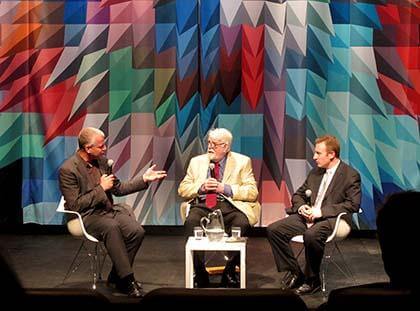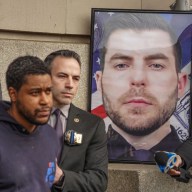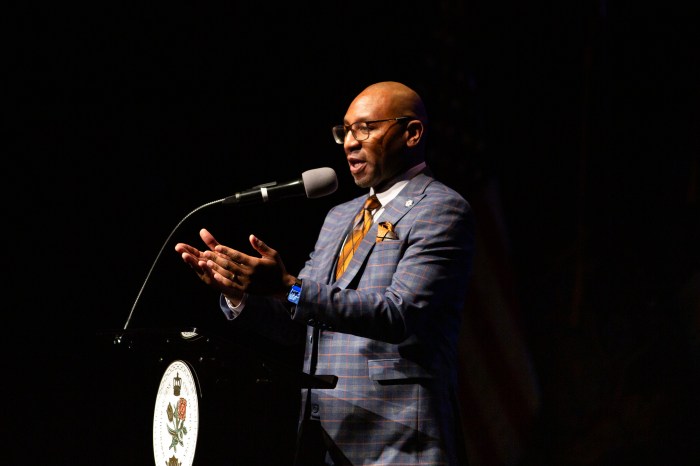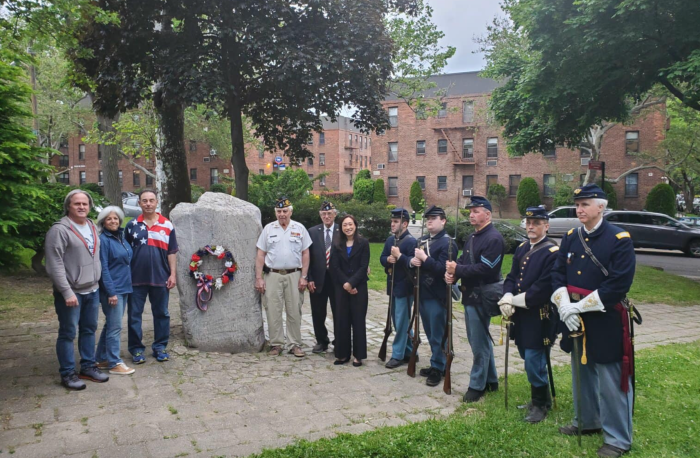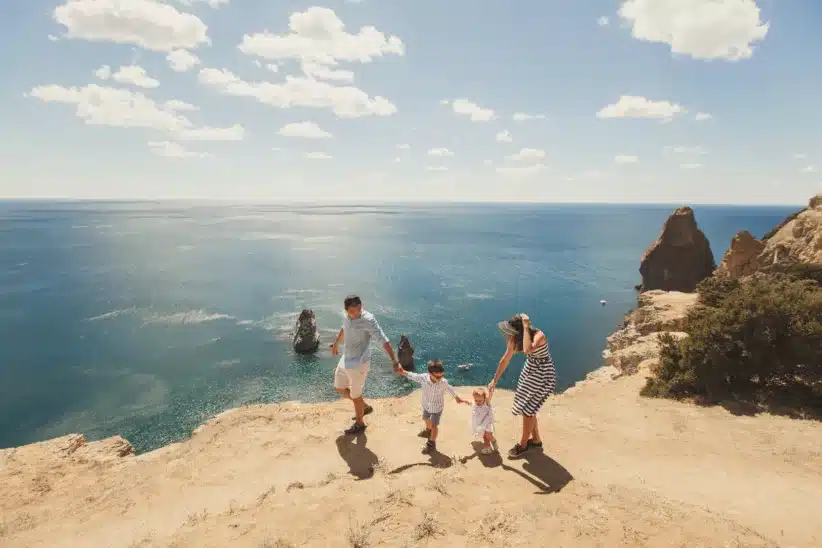By Tammy Scileppi
Whatever happened to chess legend Bobby Fischer?
A nerdy kid from Brooklyn, Fischer became a household name by 1972 when he reached the height of his fame, crushing Russian opponent Boris Spassky for the World Chess Championship in Reykjavík, Iceland. The defeat, which was seen as an American triumph during the tense Cold War between the United States and Russia, would be remembered as the “Match of the Century.”
His fans would agree that Fischer was to chess what Mohammed Ali was to boxing. In both sports you try to anticipate what your opponent might do, and you don’t know what he might do so you’re thinking of all the different possibilities.
Fischer’s life became an urban legend of sorts when at 29 he became reclusive and mysteriously fell off the radar screen. Resurfacing 20 years later, he was a shadow of his former self, teetering on the brink of madness —with no family or country.
On June 22, chess aficionados and Bobby Fischer fans flocked to the Museum of the Moving Image in Astoria, for an exciting event: A book signing with author and Queens native Frank Brady, who recently penned his fascinating new biography, “Endgame: Bobby Fischer’s Remarkable Rise and Fall — from America’s Brightest Prodigy to the Edge of Madness,” followed by a screening of Oscar nominee and Emmy-winning director Liz Garbus’ intriguing new documentary, “Bobby Fischer Against the World,” which premiered at Sundance Film Festival in January. Afterward, Brady and New York Times chess columnist Dylan McClain participated in a captivating, in-depth discussion.
Now living on the Upper West Side, Brady is a tenured journalism professor at St. John’s University and an avid chess player who grew up in Woodhaven.
Fischer’s and Brady’s paths crossed when the chess wiz was 10, and Brady was a teenager; they played several chess games together in Brooklyn, and eventually became lifelong friends. Brady recalls the very first time he met the child prodigy: “I watched him play. He was so serious… Of course, I didn’t think he would become champion of the world at that moment. When he died, something told me I had a story to tell about him.”
In 2008, Fischer died of kidney failure in the Icelandic capital where his ascent to glory culminated 36 years earlier. Fischer was 64.
Humble beginnings
It was Fischer’s older sister, Joan, who bought him his first chess set at 6 years old. She taught him the basic moves. By the age of 8, he was taking lessons at the Brooklyn Chess Club, and with a will to win that became his trademark, he was competing against America’s strongest players by age 12. His high level of competitiveness wasn’t just about chess, but was evident in all his pursuits, especially swimming and tennis.
In an excerpt from “Endgame,” a no holds barred, thought-provoking account of the chess genius’ life, Brady writes, “What was Bobby Fischer really like? This book is an attempt to answer that question… paradoxes abound: Bobby was secretive, yet candid; generous, yet parsimonious; naive, yet well-informed; cruel, yet kind; religious, yet heretical. His games were filled with charm and beauty and significance. His outrageous pronouncements were filled with cruelty and prejudice and hate.” He was anti-Semitic — denying his Jewishness — and, also, anti-American.
Brady was the tournament arbiter when his friend played his historic 11-0 (all wins, no draws, no losses) in the U.S. Championship in 1963 — one of the greatest moments in American chess history. Fischer put on one of the most incredible performances ever seen at the championship level, winning all 11 of his games. Here again, their lives connected.
A brilliant mind
It’s impossible to fully explain the inner workings of a complex mind like that of Bobby Fischer’s. With archival footage and interviews, the good, bad and ugly sides of his personality were revealed in Garbus’ documentary, acquainting curious fans who remembered his glory days with the genius who played chess like his life depended on it. And, in a sense, it did. In the end, chess was all he really had.
In an HBO interview, Garbus said, “It’s hard to imagine, but in 1972 America was chess-obsessed. Its popularity was the product of this ‘Let’s Go beat the Russians’ anti-Soviet feeling that fueled Bobby’s Fischer’s fame. When the World Chess Championship was going on, it was front page news and even bumped Watergate from the lead spot on the nightly news. A survey of bars in New York City said that 14 out of 18 had the match on.”
In another excerpt from his book, Brady writes, “I’ve been following Bobby Fischer’s life story from the first time we met — all the way to his grave in the remote and windswept countryside of Iceland. Over the years we played hundreds of games together, dined in Greenwich Village restaurants, traveled to tournaments, attended dinner parties, and walked the streets of Manhattan for hours on end. He was lightyears ahead of me in chess ability, but despite the yawning gap that separated us, we found ways to bond…”
Indeed, there were parallels between Brady and Fischer. Both loved the game and wanted to play it all the time. They came from poor families but became successful; and both had a sense of humor.
“Where the parallels split was that he became the greatest chess player of all time, and my progression in chess was as a writer and editor,” said the author.
Different paths
Spending quite a bit of time as a child reading at the Woodhaven Public Library made Brady a writer, he says.
“I was taught chess by my brother when I was 9 years old, but I really didn’t start to play seriously until I was 14 — in Forest Park, in Queens — at the outdoor chess tables,” Brady recalls. “That summer, I played from noon until it got dark — every day — and by the end of the summer I was pretty good. I’ve played the game seriously ever since.”
Still a Queens guy at heart, he occasionally catches an indie movie at the Kew Gardens Cinema.
One of Brady’s most interesting stories takes place in 1960. Fischer was 17 at the time and Brady was 26.
“I once had dinner with him at the Cedar Tavern in Greenwich Village, and asked him how he prepared for a tournament. Bobby said, ‘Oh, I’ll show you;’ he had a little pocket chess set and was showing me the games he studied against an opponent. Then he showed me games from the past — like a hundred years before — that he had memorized,” said Brady. “He had it all in his head. It was dizzying, and at one point, he almost fell into a reverie and I realized at that moment, that I was in the presence of genius. I started to weep because it was such a moment — it was like watching Mozart compose.”
While reporting for PBS and later, ABC’s Wide World of Sports, Brady had a closeup view of Fischer and his opponent during the World Chess Championship in Iceland. He hid, crouching with his mike in an air-conditioning duct since Fischer insisted on playing in a private room, away from cameras and the press. The world was watching and waiting for the chess champ who was late for the match, while his puzzling shenanigans made headlines. He made endless demands: Better lighting, no noise, more money.
“He considered himself a concert pianist on the stage at Carnegie Hall,” said Brady. “It was unthinkable to have any noise in his presence. He was concentrating on this incredibly complicated, demanding game and he wanted to throw himself completely in it. Bobby always marched to his own drum.” On the other side of the coin, Fischer’s desire for better conditions, plus his demand for a higher purse — now in the millions — had elevated and transformed the game to what it is today.
Romance was in the air.
Twist of fate
In 1992, Fischer made a surprise comeback after nearly two decades as a recluse, agreeing to play a $5 million match against his old nemesis, Spassky. He was encouraged to compete by a fan, a 17-year-old Hungarian girl named Zita, who really believed in him. He was in his late 40s, but eventually became romantically involved with her.
The defiant chess player had violated a U.S. sanction against Yugoslavia by playing that match, and an arrest warrant was issued against him. Ending up in a Japanese jail for nine months, he became an expatriate, later attempting to renounce his citizenship. The U.S. never pardoned him.
Away from the chess board, Fischer seems like a tortured lone wolf whose obsession with his passion trumped just about everything else in his life. When interviewed in the film, he admits that his life lacked balance and roundedness. Born in Chicago, he grew up in a shabby walk-up in Brooklyn, and was raised by his divorced activist mother, Regina. An extremely private man, Fischer wasn’t adept at playing the fame game, often running away from the paparazzi like a deer caught in the headlights of an oncoming 18-wheeler.
The descent
Fischer reached the pinnacle of his stellar career at a young age then wondered — what now? From then on, he was on a downward spiral, and those who were caught in his vortex were driven away by his ego-mania, paranoia, and nastiness. According to Brady, Fischer had a good heart, but he makes no bones about their tempestuous relationship — “He wasn’t the easiest person to get along with; very argumentative and stubborn.” Apparently, Fischer was just like that during matches — he never gave an inch.
“I don’t consider myself to be a genius at chess. I consider myself more to be a genius who just happens to play chess,” said Fischer. When he passed away, his last words were, “Nothing is as healing as the human touch.” His legacy is his remarkable gift as the best chess player of his time. His career was short but it was brilliant — “Imagine if Picasso died after only five paintings,” said Brady.
A line from the film seems to sum up Fischer’s enigmatic spirit — “His genius and his madness were connected at the hip.”

